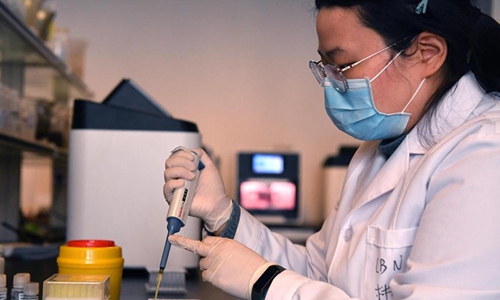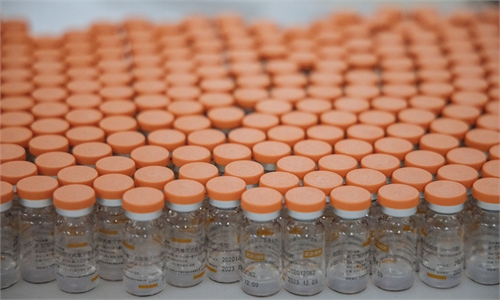
Photo: Xinhua
Two Chinese firms on Tuesday announced they had developed a rapid testing kit for the more transmissible variant of COVID-19, initially reported by the UK on December 14, and both said that results can come as fast as one hour.
A unit under China's genetics firm BGI on Tuesday confirmed it had developed a rapid testing kit for the new B117 variant strain. Cases testing positive for the coronavirus can further undergo the B117 variant test, with results provided within an hour.
The kit uses the ARMS-qPCR method designed for specific amplification of the core mutation site N501Y of the B117 strain, combined with fluorescent probe signals, to quickly identify wild-type and mutant virus strains, according a statement BGI sent to the Global Times on Tuesday.
Another company - Sansure Biotech - said in a statement later the same day that it has developed a testing kit that can rapidly identify the new coronavirus mutant, which can also be used to identify the B117 new coronavirus strain.
The reagent can distinguish between the new mutant strain B117 and the non-mutant strain within one hour, said the Chinese firm, based in Changsha, South China's Hunan Province.
The COVID-19 B117 variant has been spreading quickly in the UK and some other countries.
China confirmed on Sunday a second imported case of the variant in South China's Guangdong Province, media reported. Shanghai authorities announced on Friday that the genetic sequencing of an imported case confirmed on December 16 was found to be similar to that of the B117 new coronavirus strain, according to media reports.
Neither of the companies revealed whether the new kits are ready for export sales. Chinese firms were among the first to produce coronavirus testing kits during the early stages of the outbreak, and they have supplied and donated kits to other countries over the past year.
For instance, BGI, based in Shenzhen, has sent detection kits to 180 countries and regions including the US, Europe, Japan, Australia, Singapore, Canada and Brazil.

